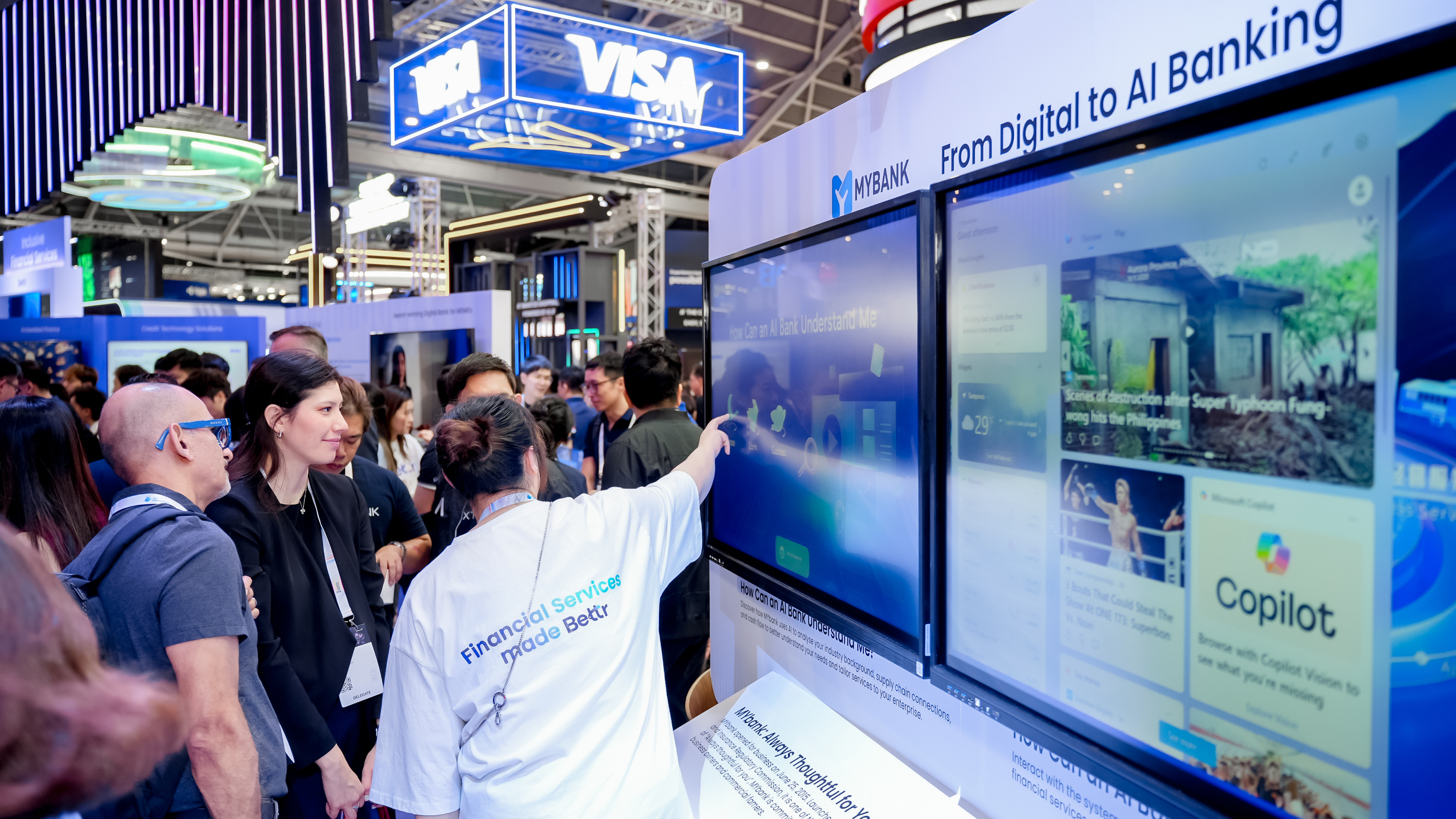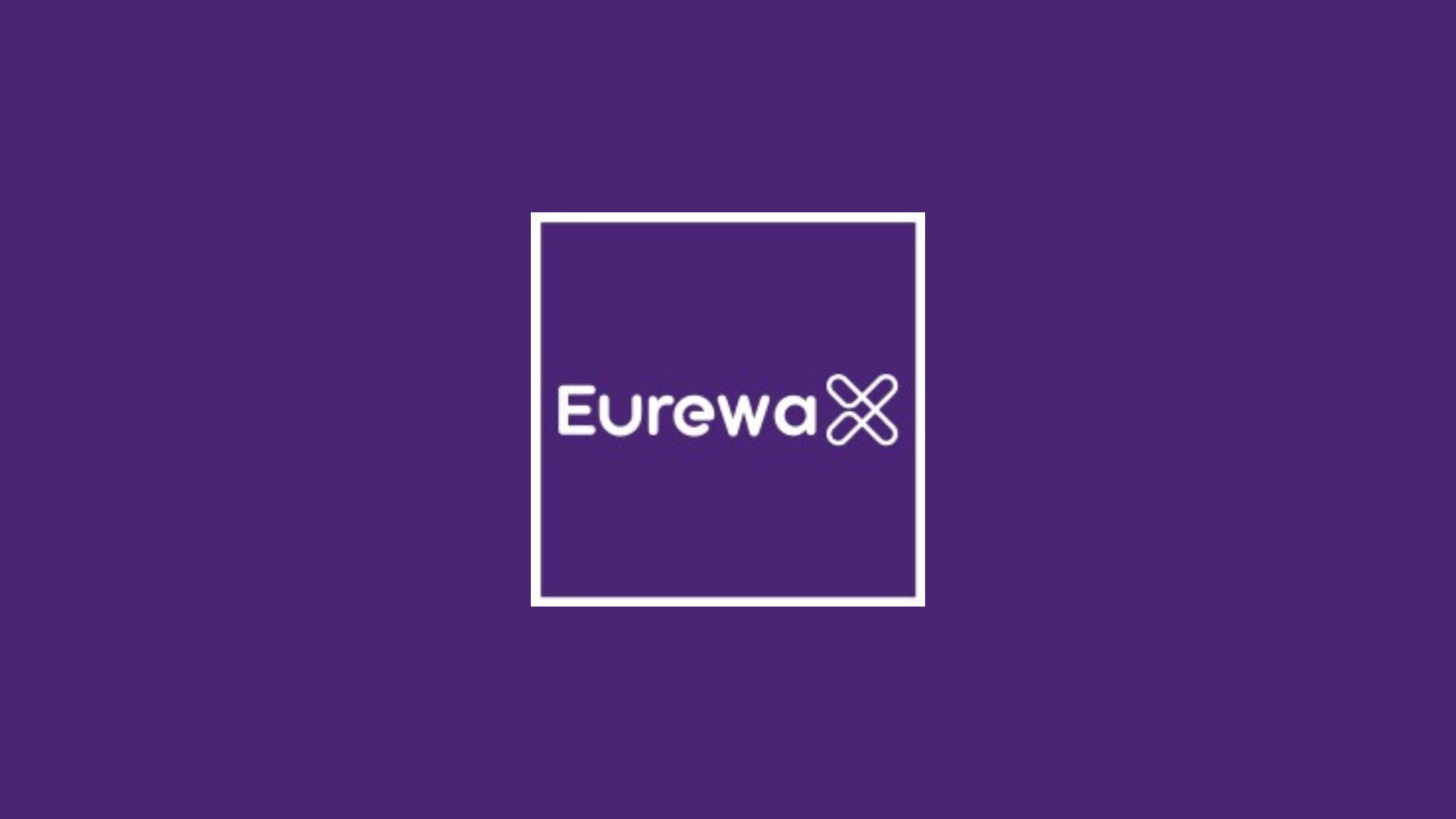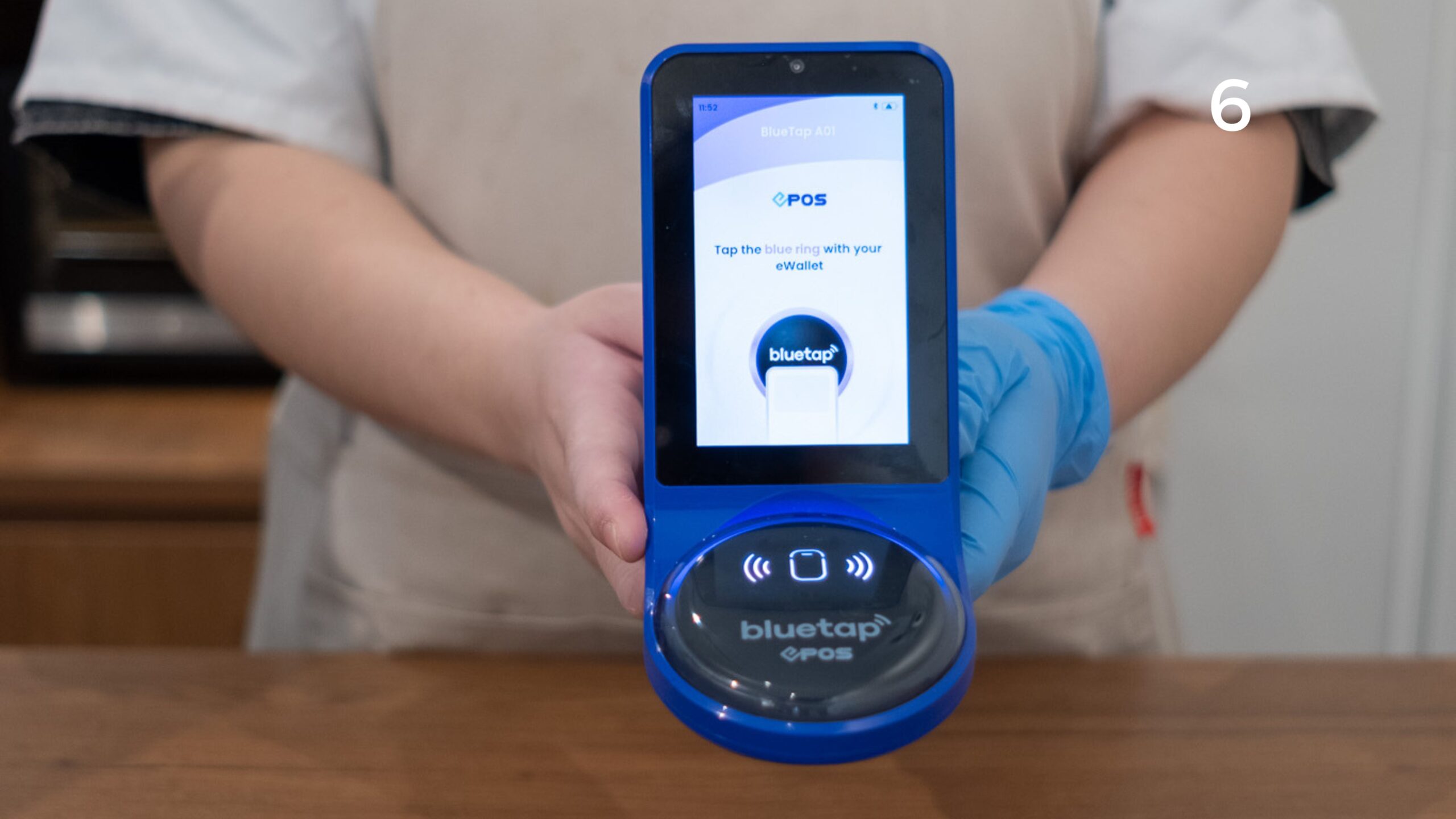AsiaTechDaily – Asia's Leading Tech and Startup Media Platform
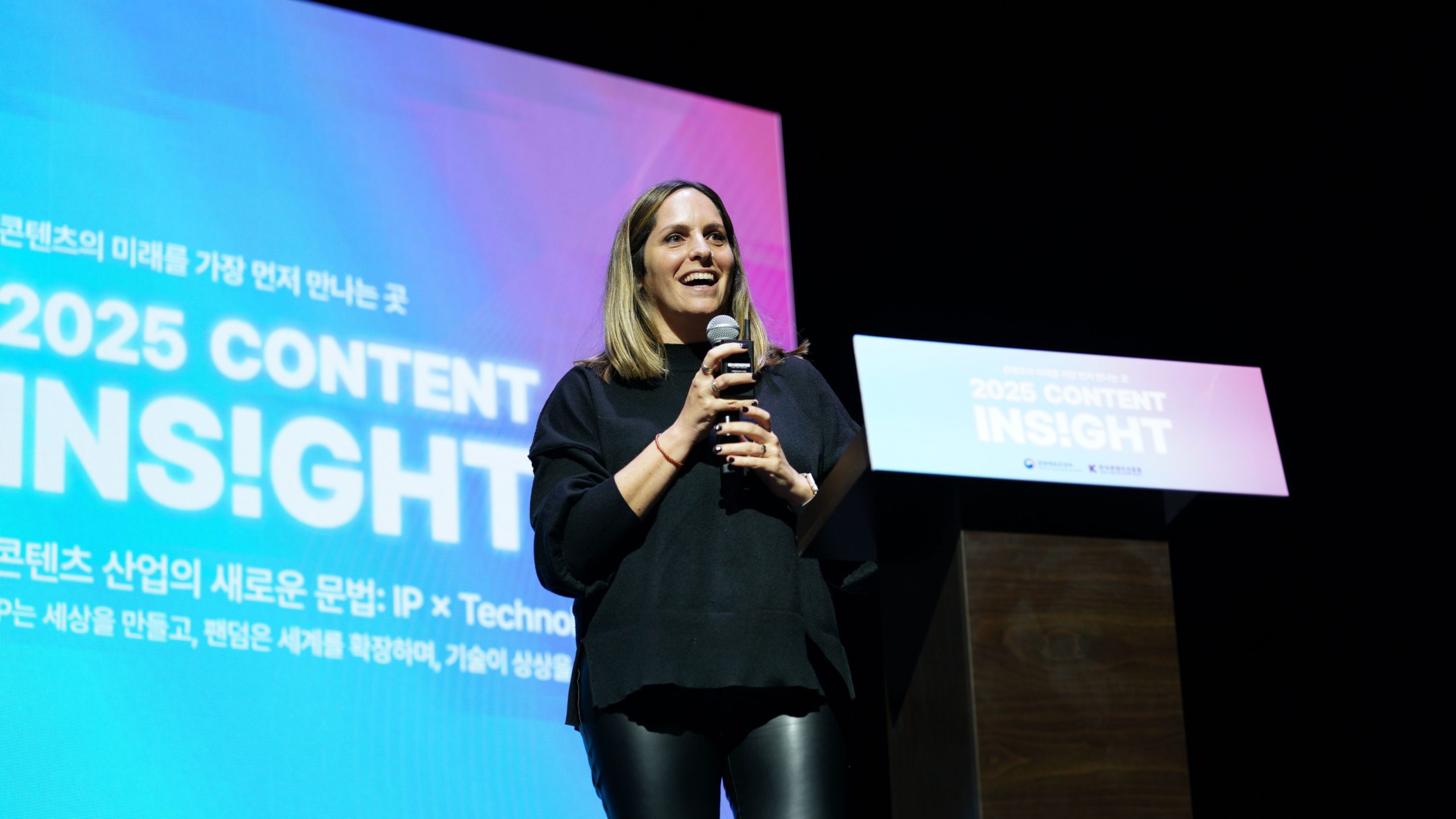
Balancing Speed, Scale, and Soul: Gilly Miller’s Vision for Creative AI at 2025 CONTENT INSIGHT
AI is reshaping how creative teams work, but speed alone cannot define the future of content creation. At 2025 CONTENT INSIGHT, Unity’s Gilly Miller explained how to integrate AI without losing human judgment.
The global content industry is entering a new era—one defined by the convergence of intellectual property, immersive storytelling, and rapidly advancing artificial intelligence. This transformation set the stage for 2025 CONTENT INSIGHT, held on November 6–7, 2025 at the Hongneung Content Culture Plaza in Seoul. Organized by the Ministry of Culture, Sports and Tourism (MCST) and the Korea Creative Content Agency (KOCCA), the event welcomed more than 2,000 creators, investors, technologists, and policymakers under the theme “The New Grammar of the Content Industry: IP × Technology.”
The forum functioned as a strategic meeting point for global creative stakeholders to examine how technology is reshaping production, distribution, and cultural impact. With live and virtual participation and simultaneous interpretation in Korean, English, and Japanese, the event reinforced Korea’s role as a global content hub.
On Day 2, one of the most discussed sessions came from Gilly Miller, Design Director at Unity. Her talk, “AI in Creative Workflows: Balancing Speed, Scale, and Soul,” delivered a thoughtful and grounded perspective on what AI truly means for creative workers today. Rather than focusing on distant futures or grand promises, Miller explored the very real tensions creators face as AI becomes embedded in everyday processes.
A Creative Industry Facing a Productivity Paradox
Miller opened by acknowledging the rapid acceleration that designers, artists, and producers have experienced in the last two years. As AI tools have multiplied, teams find themselves simultaneously empowered and overwhelmed. While AI accelerates task execution, it also reshapes expectations.
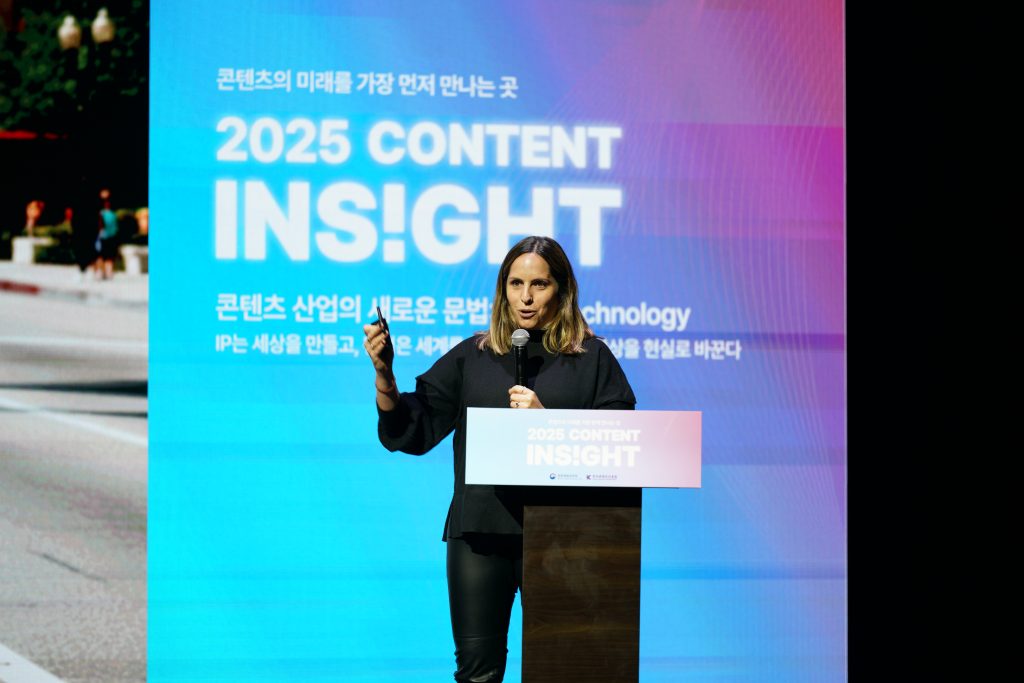
She captured this tension clearly:
“We’re not producing less work in more time. We’re producing more work in the same time.”
The promise of saved time often evaporates as output expectations rise. This mismatch—often described as the “productivity paradox”—creates pressure for teams to constantly do more, faster.
To navigate this shift, Miller argued that the first step is not technical but mental: creators must rethink how they understand AI.
From Tool to Intern: A Needed Mindset Shift
A central insight from Miller’s presentation was the importance of redefining AI’s role inside creative teams. People tend to compare new technology to older frameworks—cars as “horseless carriages,” early computers as digital desks, and AI as assistants or agents. But these analogies flatten what the technology actually does.
Her team unlocked new value when they adopted a different analogy:
“We stopped treating AI like a tool or an agent and we started treating it as a collaborator—more like an intern.”
The comparison works because AI produces ideas endlessly but without judgment. Miller described the experience with a touch of humor:
“Imagine an intern who never sleeps and wakes up every morning with a hundred new ideas. Most of them are terrible, but some of them are great.”
Seeing AI as an intern clarifies the human role. Creators must brief it, guide it, correct it, and shape its output. The value comes not from accepting AI’s first result but from art-directing it toward something meaningful. AI expands the range of exploration, but humans still decide what matters.
Why Mindset Shapes Outcome
Miller illustrated this through a comparison between two teams using the same AI system. One treats AI like a tool: they provide a short prompt, receive a mass of variations, and select a few based on fatigue rather than vision. The other treats AI like an intern: they provide context, direction, references, feedback, and refine through collaboration.
The difference between the two teams is stark—one delivers mediocre output, and the other produces sharp, on-brand, purpose-driven work. This led to one of Miller’s strongest points:
“It’s the same AI, same project, different outcomes.”
The distinction is not technological. It is entirely human.
Understanding the Hidden 90% of Creative Work
A significant part of Miller’s session focused on how AI shifts the structure of creative labor. Using the classic iceberg metaphor, she explained that only 10% of creative work is visible. The remaining 90% happens behind the scenes through exploration, iteration, research, and refinement.
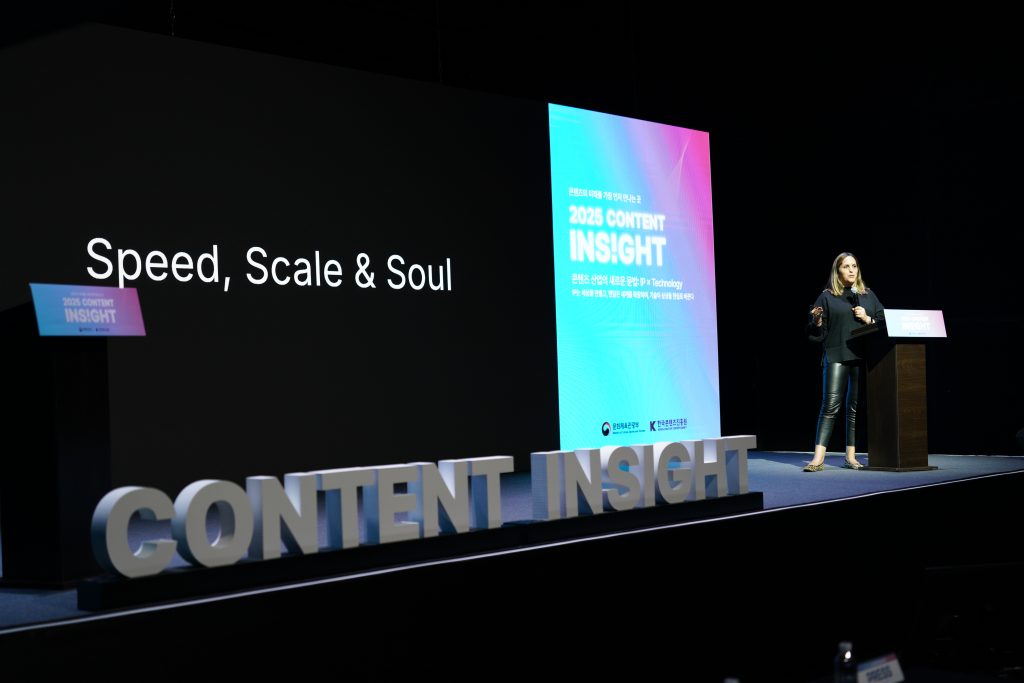
Before AI, much of the hidden workload involved technical execution: production logistics, extensive editing, repetitive manual adjustments, and slow experimentation. AI accelerates or automates a portion of this, but it does not erase the unseen work.
“AI doesn’t eliminate that 90%. It transforms it.”
Instead of reducing creative effort, AI redistributes it. Designers now spend more time on developing ideas, curating directions, strengthening narratives, and aligning with brand identity. The shift is from manual tasks to strategic thinking.
Miller summarized it with clarity:
“The skill set shifts from hand to head, and from execution to strategic judgment.”
In other words, AI changes what we spend time on, not whether time is still required.
Why Not All Repetition Should Be Replaced
Miller emphasized that embracing AI does not mean abandoning all repetitive tasks. She referenced the well-known “wax on, wax off” moment from The Karate Kid to illustrate how repetition can build intuition.
“It seems like meaningless repetition, but it becomes essential training.”
Repetitive creative tasks can activate deeper cognitive modes, allowing ideas to develop in unexpected ways. Some friction is productive; some is not. The challenge is learning which forms of repetition fuel insight and which should be automated.
This point re-centers human experience: not all efficiency is beneficial, and not all slowness is waste.
Three Principles for Integrating AI into Creative Workflows
Instead of prescribing specific tools, Miller offered three universal frameworks that can apply to any creative AI system.
1. Collaborate, Don’t Delegate
Delegation leads to accepting AI’s first output. Collaboration leads to refinement. Miller encouraged creators to brief AI properly, explain the target audience, articulate emotional tone, and provide examples before asking for variations.
“When you collaborate, you iterate through excellence.”
2. Rules Before Deliverables
Brand guardrails, reference points, emotional goals, and visual standards help AI produce relevant output. Miller recommended creating prompt libraries so teams have a shared vocabulary and creative boundaries.
“Constraints don’t limit us. They focus us.”
3. Iterate the Process, Not Only the Work
Teams often revise visuals but rarely revise how they use AI. Miller encouraged creators to periodically evaluate whether prompts, workflows, or collaboration methods need adjusting. One practical suggestion stood out:
“Ask AI to ask you better questions.”
This both clarifies your thinking and improves the final result.
Leadership and the Human Soul of Creativity
The final part of Miller’s session shifted from process to people. She highlighted how uncertainty surrounding AI has reshaped team psychology.
“The team isn’t asking how to use Midjourney or ChatGPT. They’re asking, ‘Will I have a job in two years?’”
Leadership, she argued, must address these concerns directly. Creativity still depends on human contextual understanding, emotional intelligence, and the ability to break rules intentionally.
She urged leaders to cultivate:
- Space for critique
- Time for strategic thinking
- A culture where experimentation and failure are safe
- Recognition of evolving creative titles and skill sets
Her point was clear:
AI cannot replace the human soul of creativity, but it can distract us from it if we let it.
A Practical Takeaway for Monday Morning
In a closing gesture inspired by Jewish tradition, Miller offered a “peek-imish”—a small takeaway for the audience to bring back to their teams.
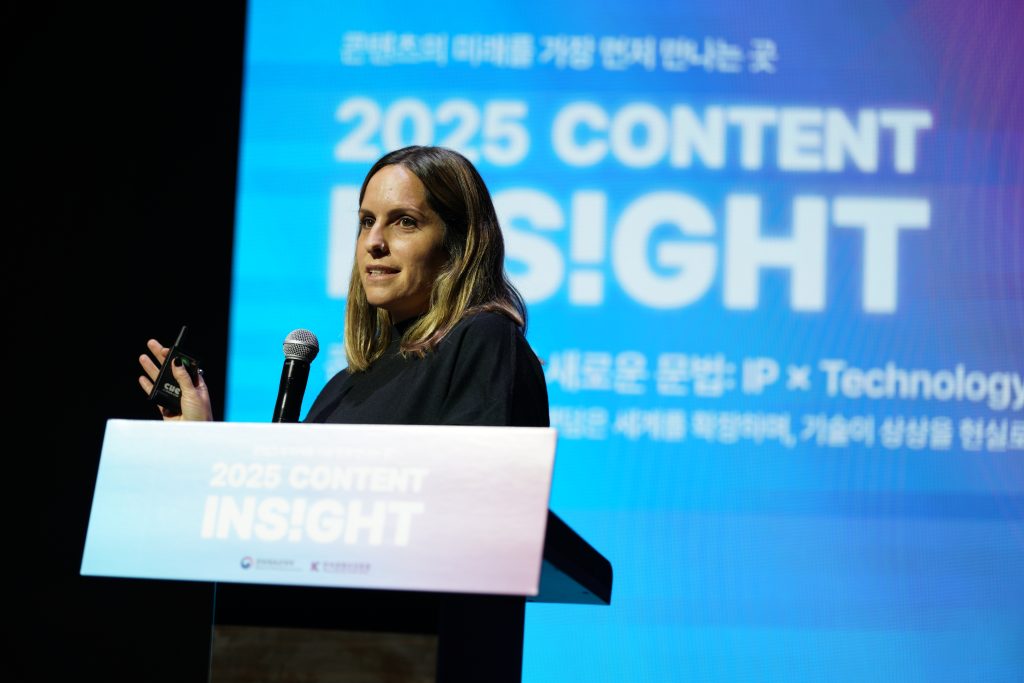
She suggested:
- Choose one repetitive workflow.
- Run a small AI experiment by briefing the system like an intern.
- Iterate. Compare. Reflect.
- Share learnings openly, especially failures.
She reminded the audience:
“The first result is always fast and mediocre. Excellence lives in pushing further.”
Gilly Miller’s contribution at 2025 CONTENT INSIGHT provided a grounded, human-centered guide for creative professionals navigating the AI era. Her emphasis on mindset, structure, and leadership resonated deeply with participants. As the global content industry continues redefining its “new grammar,” her message stands out: AI expands opportunities, but human judgment, care, and curiosity still shape the work that matters.

